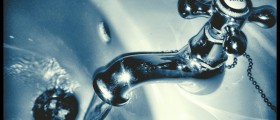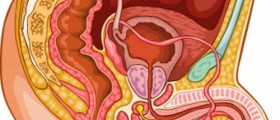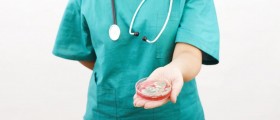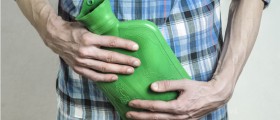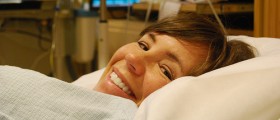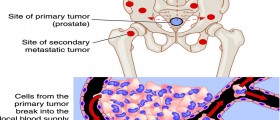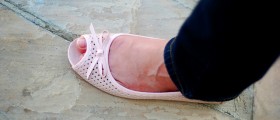Loading...
Loading...
Loading...
Loading...
Hello everyone:
I just had HoLEP surgery on 1/17/2018 at Vanderbilt University, by Dr Nicole Miller.
In order to give back some of the benefits of this forum, that turned out to be so useful to me, I will post several chronological reports relating to my experiences so that others can benefit.
1st Report --- The pre-op experiences: I actually learned about Dr Miller via this forum and also the related forum: https://www.steadyhealth.com/topics/best-doctors-for-holep-surgery? I am a 62 year old retired health professional who has been experiencing BPH symptoms for at least 5 years. During the last two years the symptoms had become significantly more severe, although I never experienced total obstruction. That said, my wife and I spend the majority of our time traveling to very remote areas (sailing & camping) where medical services are not available in the event of an obstruction, etc.. I did experience two near obstruction events when traveling in sub-freezing conditions (the cold seems to drastically aggravate my BPH symptoms). At the time medical attention was not available so that really scared me and it was at that point that I knew I had to get something done. I have no other significant medical history and lead an active lifestyle. Remarkably, my prostate (six months prior to surgery) only measured about 70 grams (which is very small compared to some of those mentioned on this forum) via ultrasound during biopsy. Of note: My PSA had jumped up drastically, while the Ratio had dropped also drastically. The biopsy was negative X 12 specimens and the digital rectal exam was unremarkable except for an enlarged prostate. Post biopsy I was started on Flomax which seemed to help a bit, But the single most important thing that seemed to improve my symptoms was the starting of a dose of NSAIDs each evening before bedtime. I believe that a significant portion of my abnormal lab results as well as my uncomfortable symptoms was due to prostatitis. I also started a small daily dose of Cialis since I had read that a daily dose of Viagra can be beneficial --- this may have helped but more than anything it made life more fun. Interestingly, after starting these medications my PSA improved significantly (although not normal) and my Ratio increased at bit (although not normal). That said my obstructive symptoms continued to worsen to the point that I did not dare travel far from the availability of medical care. Research led me to decide that HoLEP was what I wanted and I was willing to travel to have the best possible care (I live in Florida). I emailed Dr Lingeman; Dr Krambeck; Dr Humphreys; and Dr Miller. Very remarkably Dr Humphreys and Dr Miller both immediately responded In Person more than once to my communications (that says something in this day and age)!! The helpful personnel at Dr Lingeman's office also responded efficiently and quickly. Dr Krambeck's office was more difficult to reach but they also responded efficiently and quickly once reached. All the doctors were willing to facilitate travel from afar by consolidating visits. I ended up going to Dr Nicole Miller because: 1) She was the closest and not too far north in the winter; 2) She was associated with a medical university; 3) She had excellent recommendations, experience with the procedure, and training by Dr Lingeman; 4) She had started out as a nurse (which indicated a patient oriented focus in her care); 5) In her email communications she came across as a very down to earth and up front personality to which I seemed to connect. Her efficient office staff arranged for my pre-op work up to be the day before surgery so only one trip was required for those two things. Vanderbilt was also very efficient and arranged for hotel housing nearby (at a discount) with a shuttle service (very helpful in snow conditions). They also have a very good patient portal where one can communicate questions as well as view lab results, and appointments. On 1/16/2018 I went for my pre-op workup which involved an interview, labs, flow study, and cystoscopy. The cystoscopy proved to be rather uncomfortable but not nearly as bad as my previous biopsy. I viewed the procedure on the screen while the doctor pointed out the obstructive nature of my prostate as well and the changes that had occured in my bladder, including ridging and the beginning of a diverticulum. This reassured me that I was not jumping the gun and having this treatment too soon.
So, these are the events that lead up to my surgical date with Dr Nicole Miller. My next post will be about the surgical stay events.
Lessons learned pre-op: 1) Do not wait!! The sooner you get this problem taken care of the less complications you will have both pre and post op. 2) Do HoLEP - It is the new gold standard for surgical BPH treatment; 3) Go to an experienced Dr who is associated with a teaching institution.
Of note: My hometown urologist knew very little about HoLEP and seemed to be only interested in promoting the old fashion treatments that he had done for years.
Loading...
Like you Phillip my local urologist didn't seem to know much about Holep (though he wouldn't say so), and he pushed the procedure his office offered. Here's an interesting question: if the Holep was successful, is there any reason to keep seeing your urologist a year after the operation? I made one office visit after my operation and don't see any reason to go back for another office visit. Any thoughts?
Loading...
Yes --- Your should consider keeping a relationship with your local urologist for two reasons: 1) Your PSA should continue to be monitored since HoLEP does not remove the posterior portion of the organ where cancer can develop down the road. 2) Dr Miller told me that there is a remote possibility of a urological complication (such as a stricture) developing long post op which might require attention. That said, I will be having a six week, and a 1 year follow up visit with Dr Miller, and also if I were to have any issues what so ever I would go back to Dr Miller rather than my hometown doctor. Also --- at your age you might not consider PSA monitoring too important since prostate cancer is said to not progress rapidly.
Loading...
Loading...
Guest:
If you happen to be curious about your PSA you can always monitor it without a doctor by purchasing a kit from: ***this post is edited by moderator *** *** posting of web addresses is not allowed*** Please read our Terms of Use I used these kits for years before I ever went to a urologist, and found them to be quite accurate. Once I started with a urologist I did a couple more tests using the kits and found them to correlate well with the results I obtained via the urologist. However, the tests do not provide a "Ratio" --- They provide only the Total PSA. Keep in mind that you should restrict certain activities before any PSA test in order to get accurate results.
Loading...
Has anyone had incontinence last more than 3 months and then resolve? I am nervous about potentially needing surgery and would appreciate any encouragement or positive feedback that you can offer.
Robtnyc
Loading...
Loading...
Hello everyone:
I just had HoLEP surgery at Vanderbilt University in Nashville, TN by Dr Nicole Miller.
In order to give back some of the benefits of this forum, that turned out to be so useful to me, I will post several chronological reports relating to my personal experiences so others can benefit.
2nd Report --- The Operation and Hospital Stay: Arriving at the hospital before 6:00am was greatly facilitated by the free shuttle service from the nearby Holiday Inn where we were staying (especially since it was snowing). Check-in was efficient and easy --- especially since the admitting office had pre-approved my insurance coverage and called me at home regarding what my obligations would be. My wife and I were both taken to the recovery room where I was prepared for surgery. Since Vanderbilt is a teaching institution I was visited by several doctors of each specialty which gave me ample opportunity to voice my concerns. Everyone involved in the surgical process was very kind and attentive! The surgery itself turned out to be a non-event personally (this surprised me since this was my first surgery). Post-op in the recovery room I woke up with not adverse affects such as nausea or pain (correct - I has NO pain associated with the surgical site). That said - I admit that I had significant urethral discomfort due to the large irrigation catheter. However, I needed no pain medication. My wife was allowed to visit me in recovery which was nice for both of us. Eventually I was transferred to a private room on the urological floor (9 south) where my wife was allowed to stay with me (getting a room on the urological floor was very important to me since I wanted to be on a "clean post-surgical floor" instead of one with a lot of flu and infected patients). It was here that I spent the night with a continuous bladder irrigation. My urine was only a slight rose color (one of the benefits of HoLEP surgery). Admittedly the night was a miserable one for me ---> I had no surgical site pain but the urethral discomfort due to the catheter drove me up the wall. However, I declined any pain medications because I did not want to start introducing narcotics into my system which might result in my inability to void once the catheter was out. Also, in the past I have not felt well after taking narcotics. At 6:00am one of the urologists rounded and discontinued the catheter. I would say that I felt 80% better at that point and was able to easily get up and ambulate. Normally I have no issues with my bowel function but in the 24 hours since admission I was developing constipation which was causing some rather uncomfortable pressure on my prostate area. But, not too long after getting the catheter out I was able to have a bowel movement which resulted in my feeling 90% better. Much to my alarm my first void was very bloody with clots. Dr Miller informed me this was normal when she rounded and subsequent voids resulted in the clearing of the urine. I was then started on Pyridium to ease the urethral discomfort. I pushed fluids and after two voids with no significant post-void residual I was discharged. As others have said, my flow was like a fire-hose --- although I was shooting sideways initially. Dr Miller explained that she had removed about 2/3 of my prostate. She had taken extra time to remove prostate tissue that was forming a donut around my bladder neck. She also indicated that she left a bit of prostate tissue around the urethral sphincter which she said would help prevent incontinence issues. When I returned to my hotel room I noted that I: Was voiding rapidly and completely without interruptions; Had no incontinence or dribbling; Had no urgency; Had clear urine with only a few drops of blood at the end of voiding; Still had some urethral discomfort but no prostate pain; and I could not believe how good I felt considering what I had been through --- I felt like I had a had a new lease on life. We spent the next 24 hours in the hotel to make sure that I did not develop any problems before our 12 hour drive back to Florida. In anticipation of possible incontinence issues and spotting due to blood or pyridium tinged urine I had purchased Depend Fit Flex Underwear For Men at Sam's Club. Since I was having minimal drainage issues these turned out to be overkill for my situation, but I believe they are a quality product which would have been very comfortable and satisfactory for any incontinence issues.
These are my experiences during the surgical, and immediate post-surgical time period. My next post will address my experiences during my initial week post hospital discharge.
Lessons learned: 1) By having your surgery at a teaching institution you end up with an abundance of attention by various MDs which helps insure the care you desire; 2) The surgery itself is no big deal --- But, you should expect to be quite uncomfortable post-op due to the large irrigation catheter; 3) If you minimize you use of pain medications you should have not problem voiding once the catheter is out; 4) Some of the big advantages of HoLEP are: Limited bleeding due to the use of a laser; All removed tissues are sent for pathology study; You are only in the hospital for a little over 24 hours (very important); 5) I believe that Dr Miller's technique of leaving some prostate tissue around the urethral sphincter does help negate the incidence of post-op incontinence, and also protects the sphincter from the effects of the laser --- I thank her for that; 6) Having the surgery sooner rather than later help prevent post-op complications.
Loading...
That was a great report . I am glad that everything went so good for you. I am curious if Dr. Miller said anything about your relative "small" prostate. Are they harder to operate on? My prostate was only 40 grams 5 years ago. I have been on Tamsulosin and Finasteride the last 4 years. So I don't think my prostate is very large. I will find out on February 2 when my local uro will do a Cysto and Ultrasound on my prostate. I was going to go to Dr Lingeman, but maybe I should check out Dr Miller since she had such a great result with you.
Loading...




